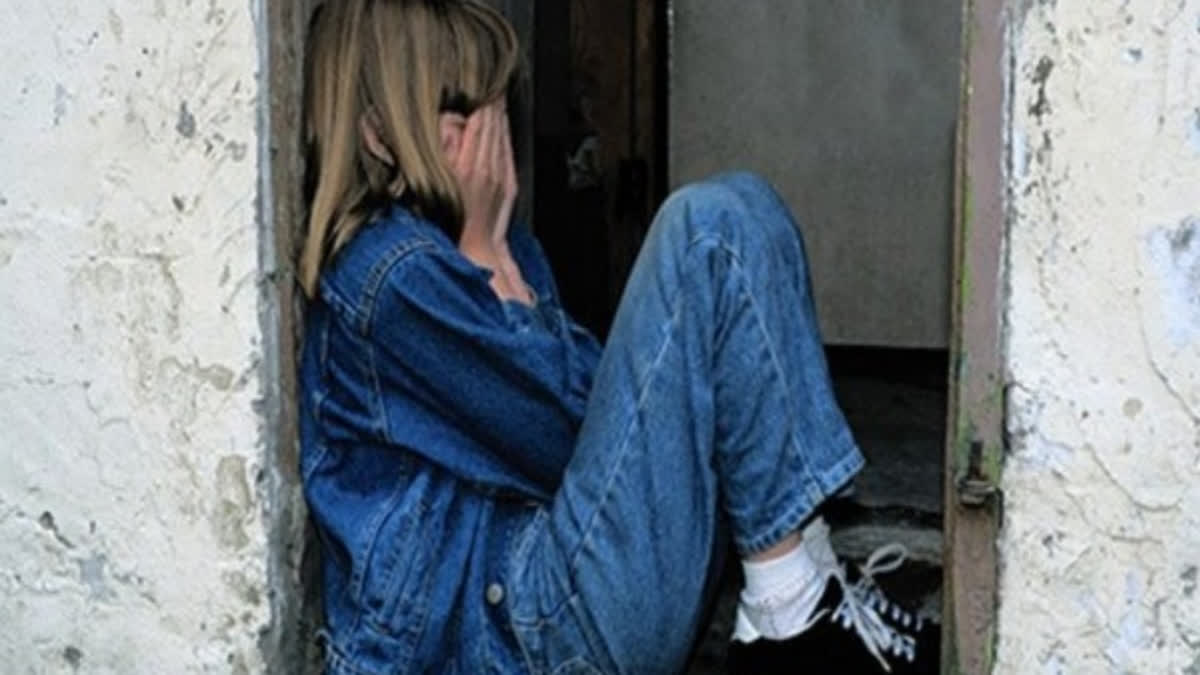London [UK]: Parents, who frequently exercise harsh discipline with young children, are putting them at significantly greater risk of developing lasting mental health problems. In a study of over 7,500 Irish children, researchers at the University of Cambridge and University College Dublin found that children exposed to 'hostile' parenting at age three were 1.5 times likelier than their peers to have mental health symptoms which qualified as 'high risk' by age nine.
Hostile parenting involves frequent harsh treatment and discipline and can be physical or psychological. It may, for example, involve shouting at children regularly, routine physical punishment, isolating children when they misbehave, damaging their self-esteem, or punishing children unpredictably depending on the parent's mood.
The researchers charted children's mental health symptoms at ages three, five and nine. They studied both internalising mental health symptoms (such as anxiety and social withdrawal) and externalising symptoms (such as impulsive and aggressive behaviour, and hyperactivity).
About 10% of the children were found to be in a high-risk band for poor mental health. Children who experienced hostile parenting were much more likely to fall into this group. Importantly, the study makes clear that parenting style does not completely determine mental health outcomes. Children's mental health is shaped by multiple risk factors, including gender, physical health, and socio-economic status.
The researchers do argue, however, that mental health professionals, teachers and other practitioners should be alert to the potential influence of parenting on a child who shows signs of having poor mental health. They add that extra support for the parents of children who are already considered to be at risk could help to prevent these problems from developing. The study was undertaken by Ioannis Katsantonis, a doctoral researcher at the Faculty of Education, University of Cambridge, and Jennifer Symonds, Associate Professor in the UCD School of Education. It is reported in the journal, Epidemiology and Psychiatric Sciences.
"The fact that one in 10 children were in the high-risk category for mental health problems is a concern and we ought to be aware of the part parenting may play in that," Katsantonis said, adding, "We are not for a moment suggesting that parents should not set firm boundaries for their children's behaviour, but it is difficult to justify frequent harsh discipline, given the implications for mental health."
Symonds said, "Our findings underline the importance of doing everything possible to ensure that parents are supported to give their children a warm and positive upbringing, especially if wider circumstances put those children at risk of poor mental health outcomes. Avoiding a hostile emotional climate at home won't necessarily prevent poor mental health outcomes from occurring, but it will probably help."
Also read:Psychological Stress develops Impotency in Men: BHU Study
While parenting is widely acknowledged as a factor influencing children's mental health, most studies have not investigated how it affects their mental health over time, or how it relates to both internalising and externalising symptoms together. The researchers used data from 7,507 participants in the 'Growing up in Ireland' longitudinal study of children and young people. Mental health data was captured using a standard assessment tool called the Strengths and Difficulties Questionnaire. Each child was given a composite score out of 10 for their externalising and internalising symptoms at ages three, five and nine.
A second standard assessment was used to measure the parenting style children experienced at age three. Parents were profiled based on how far they inclined towards each of three styles: warm parenting (supportive and attentive to their child's needs); consistent (setting clear expectations and rules); and hostile.
The researchers found that, based on the trajectories along which their mental health symptoms developed between ages three and nine, the children fell into three broad categories. Most (83.5%) were low risk, with low internalising and externalising symptom scores at age three which then fell or remained stable. A few (6.43%) were mild risk, with high initial scores that decreased over time, but remained higher than the first group. The remaining 10.07% were high risk, with high initial scores that increased by age nine.
Hostile parenting raised a child's chances of being in the high-risk category by 1.5 times, and the mild-risk category by 1.6 times, by age nine. Consistent parenting was found to have a limited protective role, but only against children falling into the 'mild-risk' category. To the researchers' surprise, however, warm parenting did not increase the likelihood of children being in the low-risk group, possibly due to the influence of other factors on mental health outcomes.
Previous research has highlighted the importance of these other factors, many of which the new study also confirmed. Girls, for example, were more likely to be in the high-risk category than boys; children with single parents were 1.4 times more likely to be high-risk, and those from wealthier backgrounds were less likely to exhibit worrying mental health symptoms by middle childhood.
Katsantonis said that the findings underscored the importance of early intervention and support for children who are at risk of mental health difficulties, and that this should involve tailored support, guidance and training for new parents. "Appropriate support could be something as simple as giving new parents clear, up-to-date information about how best to manage young children's behaviour in different situations," he said, adding, "There is clearly a danger that parenting style can exacerbate mental health risks. This is something we can easily take steps to address." (ANI)
